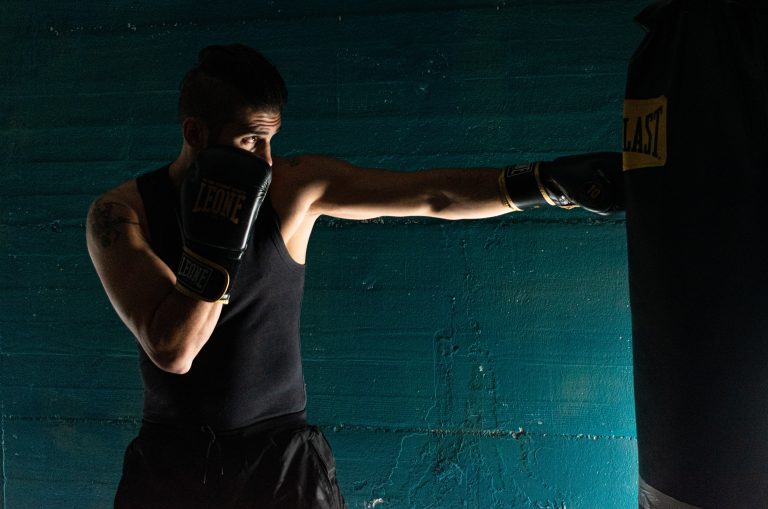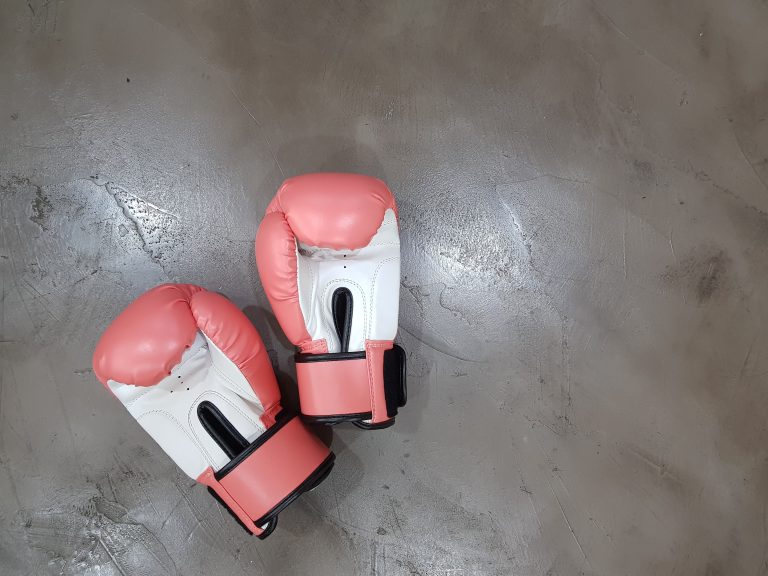How to Learn Karate at Home: A Complete Guide to Cobra Kai’s Training System
Learning karate at home is a convenient way to improve self-defense skills and overall physical fitness, especially during times when visiting a dojo is not feasible. With Netflix’s hit series Cobra Kai, more people are becoming interested in the martial art and its training methods. However, training at home without proper guidance can lead to injury or ineffective practice. In this guide, we will discuss Cobra Kai’s training system and provide tips on how to learn karate at home safely and effectively.
What is Cobra Kai’s Training System?
Cobra Kai’s training system is a blend of karate techniques, physical conditioning, and psychological training, designed to create skilled and confident martial artists. The system is based on the teachings of the show’s main character Johnny Lawrence, who learned karate from his sensei John Kreese (who is based on the villains from the original Karate Kid movies).
The training system focuses on three components:
1. Karate Techniques
The system teaches traditional karate techniques, such as kicks, punches, and blocking, with the goal of mastering them through repetition and refinement. Learning the proper form, timing, and power of each technique is essential to effective karate practice.
2. Physical Conditioning
Karate requires excellent physical fitness, and Cobra Kai’s training system includes exercises that improve endurance, strength, and flexibility. The system incorporates high-intensity interval training (HIIT), bodyweight exercises, and weight training.
3. Psychological Training
Apart from the physical components, Cobra Kai’s training system also focuses on the development of a strong mindset. The system teaches mental toughness, respect, and discipline, which are crucial traits for becoming a skilled martial artist.
How to Learn Karate at Home Safely and Effectively
While Cobra Kai’s training system is effective, it is crucial to learn karate at home safely and effectively. Here are some tips to follow:
1. Warm-up and Stretching
Before training, warm-up exercises and stretching are necessary to avoid injury and prepare the body for physical activity. Warming up increases the heart rate and blood flow to the muscles, while stretching improves flexibility.
2. Master the Basics
Learning the basics of karate is essential before advancing to more complex techniques. Take the time to practice and refine your punches, kicks, and blocks before attempting more challenging moves.
3. Use Proper Equipment
Using proper equipment, such as gloves, shin guards, and mats, can prevent injuries and provide a safe training environment. Karate gis, or uniforms, are also available online and can enhance the quality of the training experience.
4. Record and Review Your Practice
Recording your practice and reviewing it afterward is an effective way to identify mistakes and areas for improvement. Watching yourself improve over time can also boost your confidence and motivation.
5. Find a Mentor or Join an Online Community
Having a mentor or joining an online karate community can provide guidance and support. Online communities are also a great way to connect with other martial artists, share experiences, and learn from each other.
FAQs: How to learn Karate at home Cobra Kai
The TV series, Cobra Kai, has sparked renewed interest in the martial art of Karate and ignited a desire in many to learn this ancient practice. While Karate classes are available in most localities, some may not be able to attend them due to various reasons, including time and location constraints, and disabilities. As such, several people have started to investigate how to learn Karate at home, which has led to numerous questions. In this article, we will address some of the frequently asked questions on this topic.
1. Can you learn Karate at home?
Yes, you can learn Karate at home. With the advent of the internet and the numerous resources available on it, it is possible to learn and practice Karate from the comfort of your home. However, it is important to note that learning Karate at home does not replace the need for a trained instructor who can provide personalized feedback and guidance.
2. Is it safe to learn Karate at home?
Learning Karate at home can be safe, provided that proper precautions are taken. It is important to practice in a safe and open environment, free from any hazards or obstacles that could cause injury. It is also vital to ensure that you are using proper equipment, including protective gear and quality training equipment.
3. What equipment do you need to learn Karate at home?
To learn Karate at home, you will need a few basic pieces of equipment, including:
- A training partner or padded targets for striking and kicking practice
- A good quality Karate uniform or appropriate workout gear
- A Karate belt to signify your rank
4. How do I start learning Karate at home?
The first step in learning Karate at home is to identify your goals and find a suitable training program. You can look for online tutorials, books, videos, or enlist the help of a professional Karate coach who is experienced in teaching remotely. It is also important to create a dedicated and comfortable training space and set aside a consistent time to train.
5. What are the best resources for learning Karate at home?
There are numerous resources available for learning Karate at home, including:
- Cobra Kai Karate training program
- Online Karate tutorials
- Karate books and DVDs
- Virtual Karate classes with a professional trainer
6. How long does it take to learn Karate?
The time it takes to learn Karate varies depending on the individual’s dedication to practice, natural ability, and the training program’s intensity. On average, it can take anywhere between three to six years to attain a black belt in Karate.
7. What are the benefits of learning Karate at home?
Some of the benefits of learning Karate at home include:
- Fitness and health benefits
- Improved mental focus and discipline
- The convenience of training from home
- Cost savings
8. Can children learn Karate at home?
Yes, children can learn Karate at home. However, it is recommended that they have a qualified instructor who can provide them with proper guidance and ensure that they are practicing safely.
9. What are some safety tips when learning Karate at home?
To ensure safety when learning Karate at home, always:
- Practice in an open space, free from hazards and obstacles
- Wear proper protective equipment
- Train with a partner or target
- Start slow and gradually increase the intensity of the training
10. How can I track my progress when learning Karate at home?
To track your progress when learning Karate at home, keep a record of your training sessions, including the techniques you practice and the goals you have set for yourself. You can also track your progress by monitoring your physical fitness and skill development over time.
How to Learn Karate at Home with Cobra Kai
If you’ve been watching Cobra Kai on Netflix, you may be inspired to start learning karate. However, with the ongoing pandemic, attending classes in person may not be an option. The good news is that there are ways to start learning karate from the comfort of your own home. In this post, we will go through the steps you need to take to start learning karate at home, using principles from the Cobra Kai series.
Step 1: Set Up Your Home Training Space
The first step to learning karate at home is to set up a space where you can practice. Find an open area in your home where you can move around freely without touching any furniture or walls. Make sure the space is clean and clear of any potential hazards. If you have a spare room that you can dedicate to this purpose, that would be ideal.
Step 2: Find a Good Instructor or Program
While it is possible to learn karate on your own, having a good instructor or program can make a big difference in your progress. Look for online karate classes or tutorials that you can follow. Make sure the program is legitimate and has good reviews. You can also look for YouTube channels or online communities that offer training and support.
Step 3: Start with the Basics
Karate is a complex martial art that requires a lot of practice and dedication. To start learning karate, you need to focus on the basics. Learn the stances, strikes, kicks, and blocks that form the foundation of karate. Take your time with each technique and practice until you feel comfortable with it. As you progress, you can move on to more advanced techniques.
Step 4: Practice Regularly
Practice is key to mastering karate. Set aside a regular time each day to practice your techniques. Aim for at least 30 minutes to an hour of practice each day. Make sure to warm up before you start, and cool down after you finish. Consistent practice will help you develop muscle memory and improve your technique.
Step 5: Join an Online Community
Learning karate at home can be challenging, especially if you don’t have anyone to practice with. Joining an online community of karate practitioners can provide you with support and motivation. You can ask questions, share your progress, and get feedback on your techniques. Having a community can also help you stay committed to your practice.
Step 6: Track Your Progress
Tracking your progress is important to stay motivated and see how far you’ve come. Keep a journal or log of your practice sessions. Write down the techniques you worked on, how long you practiced, and any insights or observations you had. This will help you see your progress over time and identify areas that need improvement.
Conclusion
Learning karate at home takes dedication and hard work, but with the right mindset and approach, it can be a rewarding experience. By setting up a training space, finding a good instructor, starting with the basics, practicing regularly, joining an online community, and tracking your progress, you can build a solid foundation in karate. Whether you’re a fan of Cobra Kai or simply want to learn karate, these steps will help you get started on your journey.
Inhaltsverzeichnis






